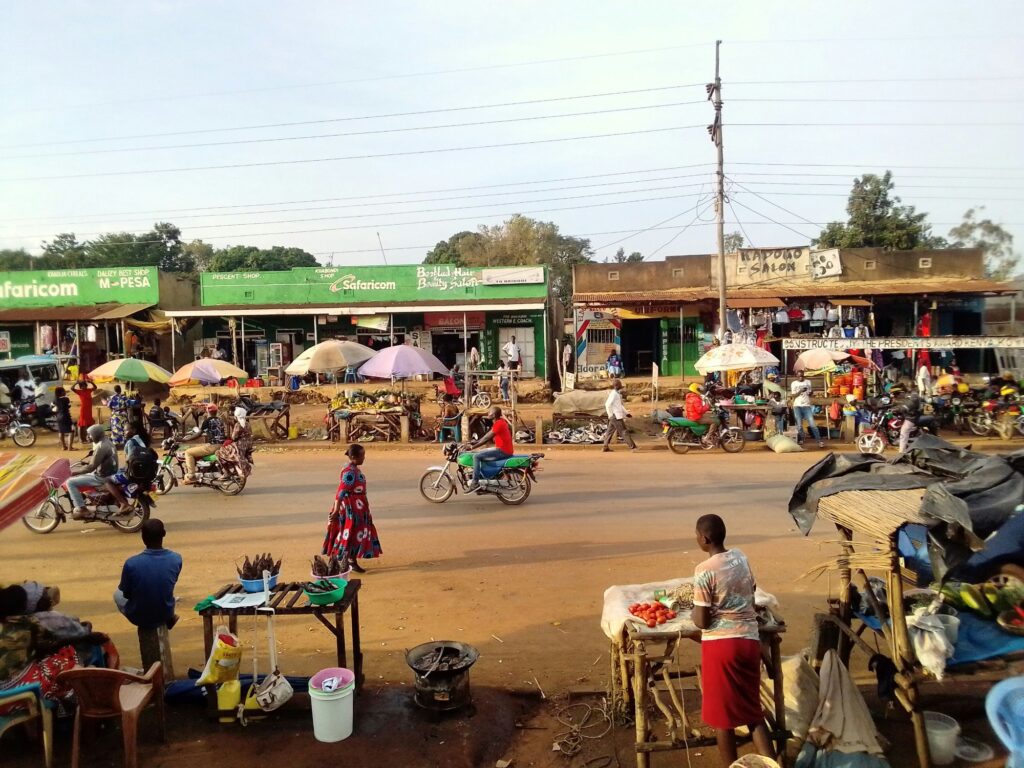
As someone who was born and raised in Busia County, I know this region like the back of my hand. Except for college, all my learning took place right here — from Nambale Urban Primary School to St. Mary’s Boys High School, Mundika. Along the way, I’ve made countless friends and met many people from different corners of this great county.
Now, before you start thinking, “here it comes — he’s running for governor or senator!” — let me disappoint you early. I have no such political ambitions, at least not for now. What I do have, however, is a deep concern and love for this county and its people. And that is why I feel compelled to share a few thoughts on how our leaders can transform Busia by creating employment through agribusiness.
Understanding Busia’s People and Potential
Busia is a vibrant county blessed with hardworking people — Luhya (and their many sub-tribes), Teso, and even our Luo brothers and sisters who call this place home. Our main economic activity, as everyone knows, is farming.
We grow both food and cash crops. Sugarcane dominates as the main cash crop, while the common food crops include sweet potatoes, sim sim (sesame), finger millet, sorghum, groundnuts, cassava, and a variety of traditional vegetables like mrenda, mito, and black peas, among others. On top of these, we also grow maize, beans, and other modern crops.
If you’ve lived here long enough, you’ll agree with me — our people have the potential, strength, and numbers to build a thriving local economy. Unfortunately, these same strengths have turned into setbacks because no one is truly tapping into them.
Unemployment remains one of the biggest concerns — not just in Busia but across Kenya. Yet, in Busia, it feels even more painful because we have so much untapped potential in agriculture.
Where Our Leaders Are Failing Us
If I, an ordinary citizen, can clearly see these challenges — unemployment, poverty, insecurity, and slow economic growth — then surely, our leaders see them too. They live among us, campaign among us, and ask for our votes with promises to make our lives better.
So why does it feel like nothing is changing?
When leaders come to seek our votes, I expect them to have unemployment at the top of their minds — or at least somewhere in their manifestos. I still remember when former Nambale MP, Hon. Sakwa Bunyasi, introduced what he called the Nambale Constituency Strategic Plan. It was a bold and visionary document that outlined real strategies for addressing our economic challenges. Sadly, it seems to have been forgotten.
We need leaders who truly understand the people and their needs — leaders who think beyond bursaries and handouts.
Take Nambale Sub-county, for example — it doesn’t even have a single bank. What does that tell you? Our local economy is lifeless. There’s little to no financial activity, and without that, businesses struggle, farmers remain poor, and the youth are left hopeless.
The Missed Opportunities in Our Backyard
The truth is, the easiest way to create jobs and revive our economy in an agricultural county like Busia is simple:
- Empower the farmers
- Find reliable markets for farm produce
- Promote value addition through small industries
Look at what’s happening elsewhere in Kenya.
In Murang’a County, the governor recently initiated an avocado value-addition project. Instead of exporting raw avocados, they now process them into products like oil, soap, and animal feed. This simple shift has created hundreds of jobs — from factory workers to transporters to farmers who now earn more for their produce.
In Makueni County, a similar success story has emerged around mango processing. By establishing a fruit processing plant, the county has created new industries and empowered local farmers.
If Murang’a can do it with avocados and Makueni can do it with mangoes, why can’t Busia do it with sweet potatoes, groundnuts, or cassava?
We already have the raw materials. All that’s missing is the vision — and goodwill — from our leaders.
The Real Problem: Leadership Without Will
It’s not that we lack resources. County governments have budgets, MPs have the Constituency Development Fund (CDF), and there are countless NGOs and government programs targeting youth and women empowerment.
The problem is leadership without goodwill. Some of the people we elect are either incompetent or uninterested in empowering the people. Others are simply too comfortable with the status quo — where citizens remain dependent on handouts and political favors.
True leadership is about giving people the means to stand on their own feet. It’s about investing in projects that will create jobs for years to come, not just distributing short-term relief or bursaries.
A Conversation with the Youth
Not long ago, I was chatting with some of my friends — fellow youths — about the lack of opportunities in our county. We all agreed that not everyone who finishes school wants to become a farmer or a construction worker.
Some have other dreams — to work in manufacturing, technology, trade, or skilled crafts — but without opportunities, those dreams fade away.
Not everyone has relatives in Nairobi or other towns to help them find work. Many feel trapped, stuck in a cycle of frustration. And when hope fades, some end up joining the wrong crowds or engaging in crime just to survive.
It’s heartbreaking, but it’s the reality we face every day.
What Can Our Leaders Do Differently?
I’ve heard people praise our local MP, Hon. Mulanya, at funerals and public events, saying he’s working hard. When you ask what exactly he’s done, the common answer is: “He’s given out bursaries and build classrooms.”
Don’t get me wrong — bursaries are important. But what about those who don’t have children in school? What about the youth who have finished school and need jobs? What about parents who struggle to put food on the table every day?
Who is working in their interest?
It’s time our leaders expand their definition of “development.” Roads and bursaries are good, but we also need factories, cooperatives, and innovation hubs. We need visible projects that give ordinary people dignity and income.
A Simple, Practical Idea
Let me give a simple example.
What would it cost for Hon. Mulanya or Governor Otuoma — or any local leader — to help set up a sweet potato value-addition center in Nambale? A small processing shack with the right machinery could easily cost under five million shillings.
That’s less than what is spent on some of the small road projects we see. But the impact? Immense.
Such a project could employ dozens of youths and women — those directly working in the facility and others involved in farming, supply, and distribution. Farmers would finally have a ready market for their sweet potatoes.
For more on sweet potato value addition read: Sweet potato value-added products in Kenya
And once that happens, farmers in neighboring sub-counties would start planting more, traders would transport more, and the local economy would begin to move again.
This is how change happens — through small, people-centered ideas that actually solve problems.
Empowering Women and Youth Through Agribusiness
Busia’s women are some of the most hardworking people you’ll ever meet. They till the land, trade in markets, and feed families. Imagine what could happen if we supported them with proper tools, training, and access to credit.
A women-led cooperative could handle processing and packaging of traditional vegetables or groundnut paste — products that could be sold locally and even exported.
Our youth, on the other hand, are creative and full of energy. They could run small enterprises for drying, packaging, and branding farm produce. Others could manage digital marketing and e-commerce platforms to connect Busia’s farmers to customers beyond the county.
But for all this to happen, leaders must be willing to invest — not just in words but in action.
The Role of County Government and Partnerships
County governments are strategically positioned to drive agribusiness growth. They can:
- Establish small industrial parks for value addition.
- Partner with private investors to build agro-processing plants.
- Facilitate training and extension services for farmers.
- Create linkages to markets through cooperatives.
They can also work with NGOs and international partners already operating in the region. These organizations have funds and technical expertise but often struggle to find reliable local partners. The county government can fill that gap by coordinating efforts and ensuring sustainability.
Beyond Politics: Building an Economy That Works
It’s sad to see that so many of our leaders only spring into action during election seasons. They come with promises of roads, water, and electricity — all important, yes — but none of these can transform an economy if the people remain unemployed.
Agribusiness is the backbone of Busia’s economy. It’s what sustains most families, pays school fees, and keeps households running. By turning it into a more profitable and job-creating sector, we can uplift thousands of families.
Imagine Busia exporting packaged cassava flour, bottled traditional vegetables, or branded groundnut paste to supermarkets in Nairobi or Kampala. Imagine youth-owned startups offering agricultural logistics, e-commerce for local produce, or even agritourism.
Also read: Cassava Value-added products in the country
That’s not a dream — it’s possible. All it takes is leadership with vision and determination.
A Message to Our Leaders
Before I proceed, let me pass on my condolences on the passing of Raila Amollo Odinga (Baba). May his soul rest in eternal peace.
Now to our MPs, MCAs, and county executives — the time for talking is over. The people of Busia are watching and waiting. You have the power and the resources to transform lives.
Start small, start local, but start now. Build that sweet potato processing plant. Support a women’s cooperative. Fund a youth-led agribusiness. Bring back dignity and hope to this county.
Because if you don’t, NGOs will continue doing what you should be doing. And when history is written, it won’t remember those who gave bursaries — it will remember those who built opportunities.
In Closing
Busia doesn’t need handouts; it needs vision. Our people don’t need empty promises; they need practical solutions.
By focusing on agribusiness, we can turn farms into factories, and farmers into employers. We can turn idle land into productive ventures and transform hopeless youths into entrepreneurs.
Our leaders must rise above politics and start real projects that create value from what we already have — our land, our crops, and our hard work.
The future of Busia lies in the soil beneath our feet and the hands of our people. All we need is leadership that believes in that vision — and acts on it.
Also read: Sesame Farming and Health Benefits

Disclosure: This banner contains an affiliate link. I may earn a commission if you purchase through it, at no extra cost to you.
